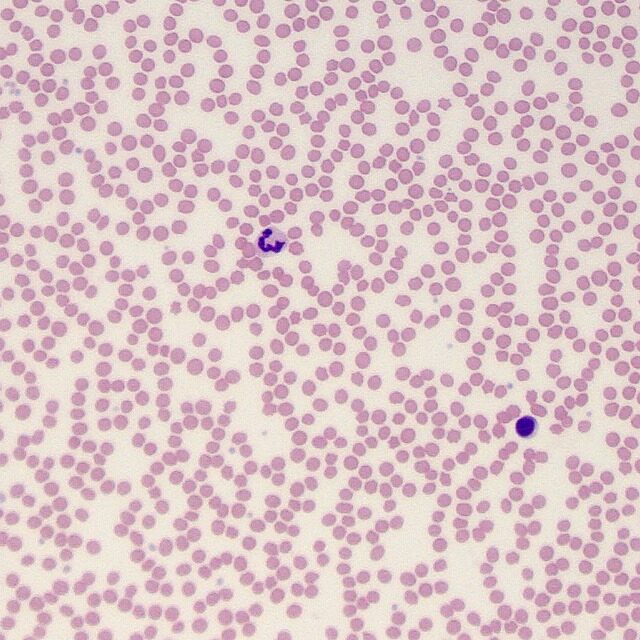
Have you ever heard the term “CBC” used but didn’t fully understand it? Keep reading to find out what this extremely important test can tell us about your horse’s health!
![]() CBC stands for “complete blood count” and is a measurement of all the different cells in your horse’s blood. This includes red blood cells, white blood cells, and platelets.
CBC stands for “complete blood count” and is a measurement of all the different cells in your horse’s blood. This includes red blood cells, white blood cells, and platelets.
![]() Red blood cells (RBCs) are tasked with carrying oxygen from the lungs to tissues and transporting carbon dioxide waste from tissues back to the lungs for expulsion. One third to almost half of your horse’s blood volume is composed of RBCs and they are why blood has it’s characteristic red color. A CBC gives us detailed information about the number of RBCs and if there are any detectable abnormalities with the cells themselves.
Red blood cells (RBCs) are tasked with carrying oxygen from the lungs to tissues and transporting carbon dioxide waste from tissues back to the lungs for expulsion. One third to almost half of your horse’s blood volume is composed of RBCs and they are why blood has it’s characteristic red color. A CBC gives us detailed information about the number of RBCs and if there are any detectable abnormalities with the cells themselves.
![]() White blood cells (WBCs) are the body’s main defense against infectious disease. There are lots of different types of white blood cells, each having a niche in what pathogens they typically respond to. Types include neutrophils, lymphocytes, basophils, eosinophils, and monocytes. The CBC provides us with information about total WBC count as well as numbers of each individual type of cell to ensure that they are within appropriate ratios of each other.
White blood cells (WBCs) are the body’s main defense against infectious disease. There are lots of different types of white blood cells, each having a niche in what pathogens they typically respond to. Types include neutrophils, lymphocytes, basophils, eosinophils, and monocytes. The CBC provides us with information about total WBC count as well as numbers of each individual type of cell to ensure that they are within appropriate ratios of each other.
![]() Platelets are responsible for forming blood clots and slowing hemorrhage after trauma has occurred. They can also control the release of healing factors in damaged tissues. Alterations in numbers give important information about possible clotting disorders or bone marrow disease.
Platelets are responsible for forming blood clots and slowing hemorrhage after trauma has occurred. They can also control the release of healing factors in damaged tissues. Alterations in numbers give important information about possible clotting disorders or bone marrow disease.